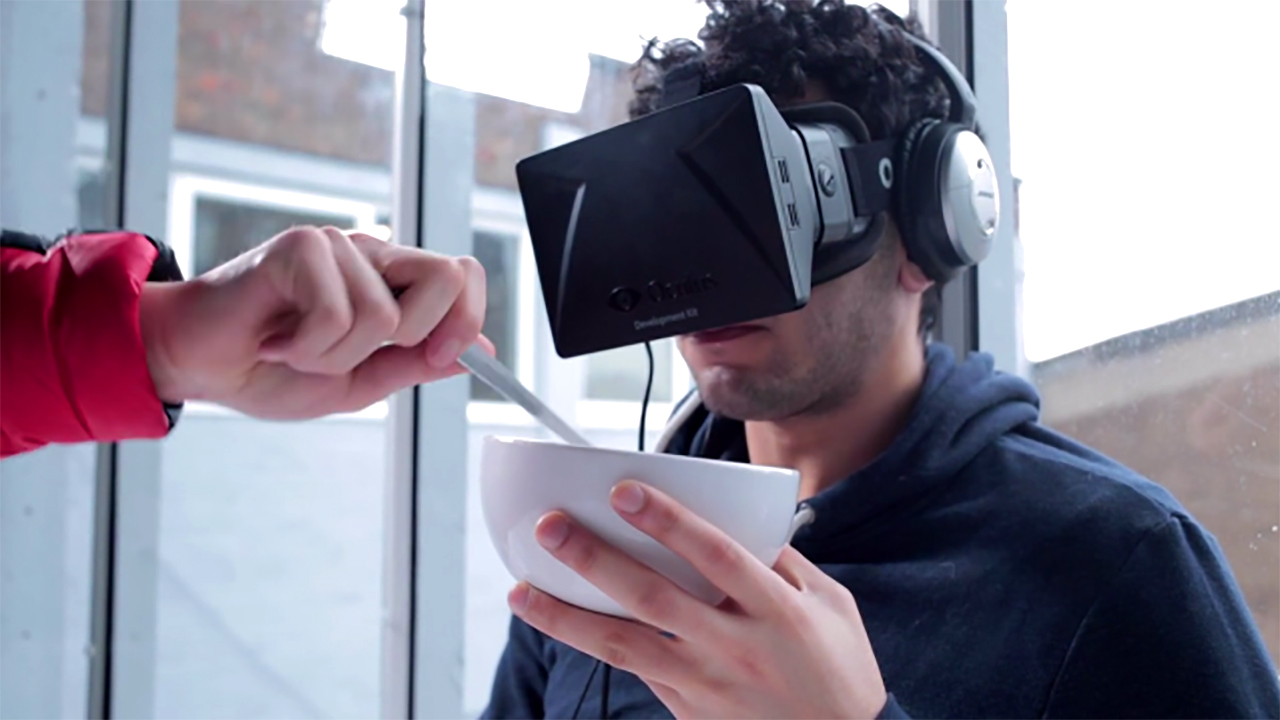Now that Facebook has put major bucks behind Oculus Rift, virtual reality is on its way to being within the grasp of any average consumer. It remains to be seen whether mainstream audiences will adopt the technology, but if they do, how much will they use it? The average American watches five hours of TV a day, studies show that people check their phones 150 times a day and nearly half of Americans do both at the same time. If virtual reality becomes a phenomenon, it seems quite possible that it will join our other screens for some heavy duty use.
That’s what makes a new project by Mark Farid, a London-based artist, so compelling. Farid wants test the limits of the human mind by experiencing the world in virtual reality for 28 days straight. His new Kickstarter campaign is attempting to raise the funds that would allow him to live inside a gallery wearing an Oculus headset 24/7. A second person — whom he calls “The Other” — will wear a camera on his head at all times and stream his view into Farid’s eyes. The artist doesn’t know the man who will be The Other, only that the person will be a heterosexual male living with a male partner. Farid will see what The Other sees, and will adapt his own eating, sleeping, and shower schedule to match that of The Other’s.
The central question of the project, which he has titled Seeing I, is outlined on the Kickstarter:
If our consciousness is experienced through the perception of sight and sound; through interaction, through technology and through our conception of knowledge, to what extent is it really our own?
Farid arrived at 28 days because of the common belief that it takes 21 days to form a new habit, a concept that indicates he really wants to get into the psyche of someone else.
Farid is aware of the potential psychological danger, and has been preparing for it. He will interact with only person during his experiment — a psychologist specializing in neuroscience who will visit once a day. That seems prudent considering that there may be real danger involved. A neuropsychology professor tells the The Independent:
Professor Barbara Sahakian, a professor of clinical neuropsychology at Cambridge’s department of psychiatry as well as a member of the Medical Research Council, said: ‘I am concerned about how such a long project which involves voyeurism on the part of Mark and also on the part of the public in regard to Mark will affect his mental health and wellbeing.
‘It could be extremely disturbing and it is unclear whether any potential damage to Mark’s mental health could be repaired.’
Ultimately, the project is planned to be a documentary film with footage from the gallery and “The Other” and interviews with experts on topics raised by the work. If that sounds like something you want to see, you can contribute to his Kickstarter and become one more virtual participant.
(Photo: Seeing I)



